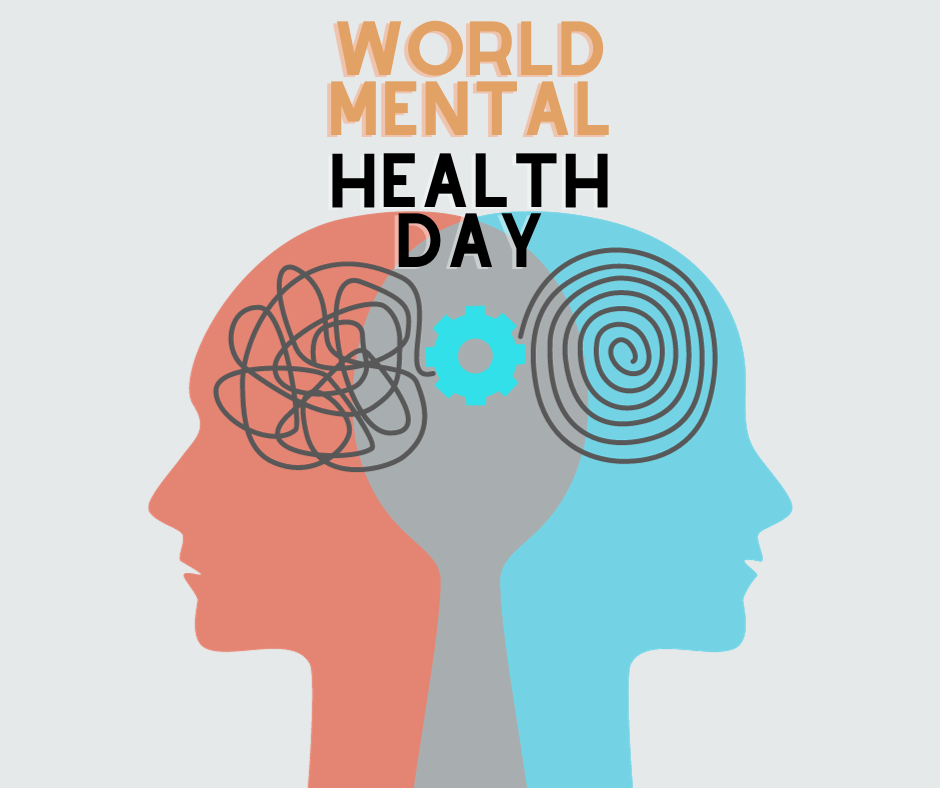World Mental Health Day
- Faith Hospital
- Oct 10, 2023
- 3 min read
Every year on October 10th, World Mental Health Day is observed to raise awareness about mental health issues and advocate for better mental health care worldwide. In 2023, the theme is "Mental Health is a Universal Right," emphasizing the fundamental importance of mental well-being for all individuals, regardless of their background, gender, age, or socioeconomic status.

Mental health is a fundamental aspect of human well-being. It affects how we think, feel, and act, shaping our ability to handle stress, relate to others, and make choices. Unfortunately, mental health issues are pervasive and affect millions of people worldwide. In many countries, stigma and discrimination surrounding mental health persist, preventing individuals from seeking help or accessing proper care.
The "Mental Health is a Universal Right" theme highlights that mental health is not a luxury reserved for a privileged few; it is a basic human right. Just as we recognize the right to physical health, education, and freedom of speech, we must acknowledge and uphold the right to good mental health for every person on this planet. Open conversations and education about mental health help break down barriers to seeking help. International organizations like the World Health Organization (WHO) are actively promoting mental health as a global priority. They provide guidance and resources to countries in developing and implementing mental health policies.
Mental health in India
According to the evidence available, in India, about 190–200/1000 populations have a psychiatric or mental disorder, this accounts for about 20% of the whole population. One in seven Indians were affected by mental disorders of varying severity in 2017. According to NMHS 2016, A lifetime prevalence of 1.4% was observed for Schizophrenia and psychotic disorders and 5.6% for mood disorders. The lifetime prevalence of depressive disorders was 5.1%
The prevalence of current mental morbidity was found higher in males as compared to females for both current (13.9% vs. 7.5%) and lifetime (16.7% vs. 10.8%). The age group of 40-49 years (14.5 %) had the highest prevalence, while urban metro residents (14.7%) had a higher prevalence for current experience of mental morbidity. the mental morbidity rates decreased as the education status increased. The most frequent mental disorders (current prevalence) among adolescents were Anxiety disorders and mood disorders. among the elderly population: Over 15% above 60 years suffer from mental health problems worldwide.
Depression affects up to 7% of the population.
Dementia affects 5% of the older population.
Anxiety disorder affects 3.8% of the older population.
Mental health in Punjab
In Punjab:
The overall lifetime prevalence of mental morbidity was 17.94% and the current mental morbidity was 13.42%. (higher than India’s average). One out of eight Punjabis is suffering from mental illness and 80% of Punjabis are not getting any access to treatment.
A higher prevalence of alcohol (7.9%) and substance abuse (2.4%) is the major factor for the higher prevalence of mental morbidity in Punjab. According to the magnitude of Substance Abuse survey (2019), every second male in Punjab is abusing alcohol(50%). higher mental morbidity among the rural population (15.0%) as compared to urban nonmetro (13.37%) and urban metro (13.38%). This is different from the rest of the country where prevalence is more in urban metro cities.
Although factors are not assessed the possibility of psychiatric illnesses in Punjab rural areas could be because of factors such as crop failure, ever-increasing debt, higher cost of cultivation, poor yield, and unemployment.
World Mental Health Day 2023's theme, "Mental Health is a Universal Right," underscores the global commitment to ensuring that every person has the right to good mental health. It is a reminder that we must continue to break down barriers, reduce stigma, and advocate for mental health policies that prioritize the well-being of all individuals. By working together on a global scale, we can make mental health a universal right, creating a world where everyone has the opportunity to live a mentally healthy and fulfilling life

Comments